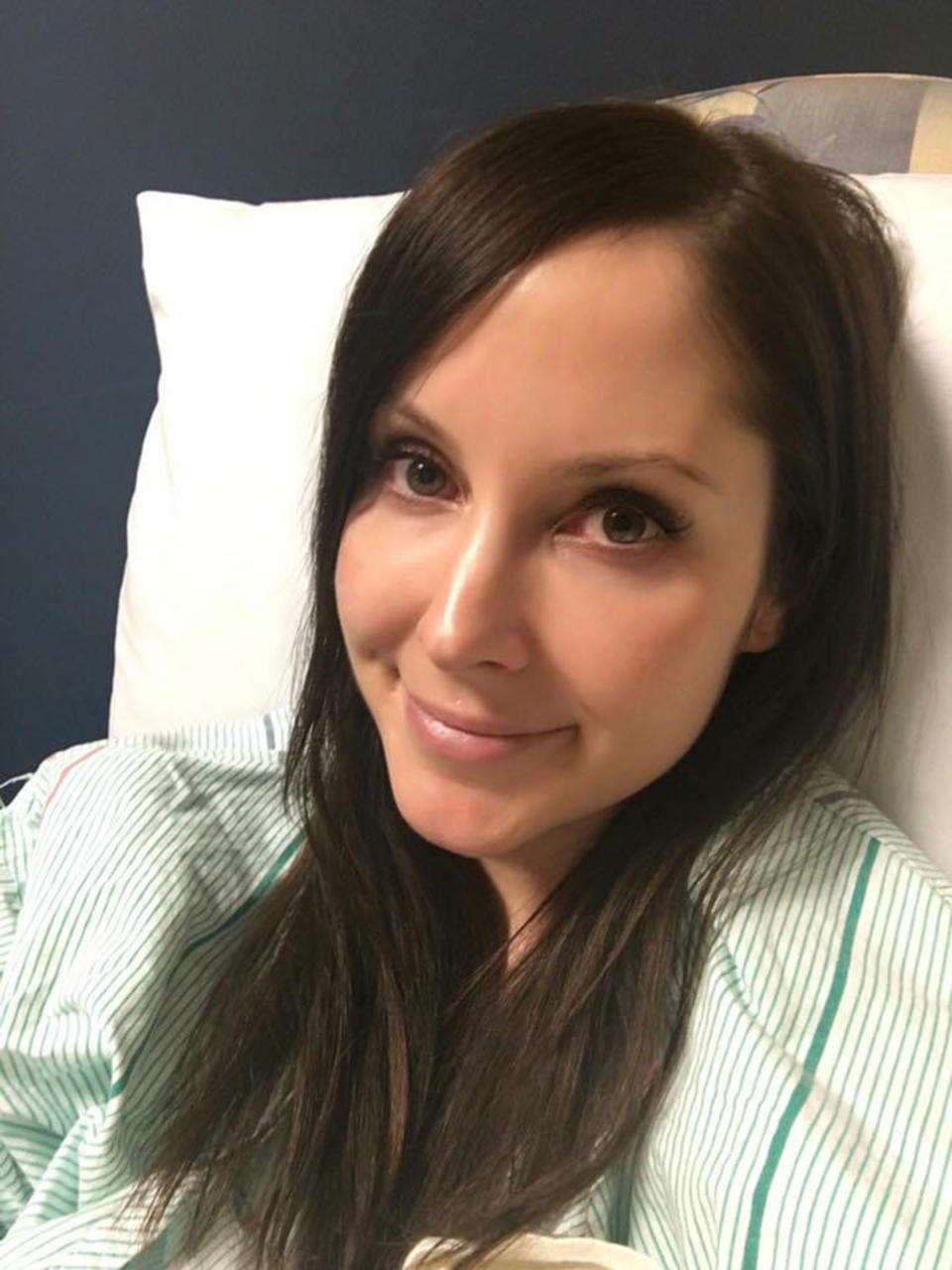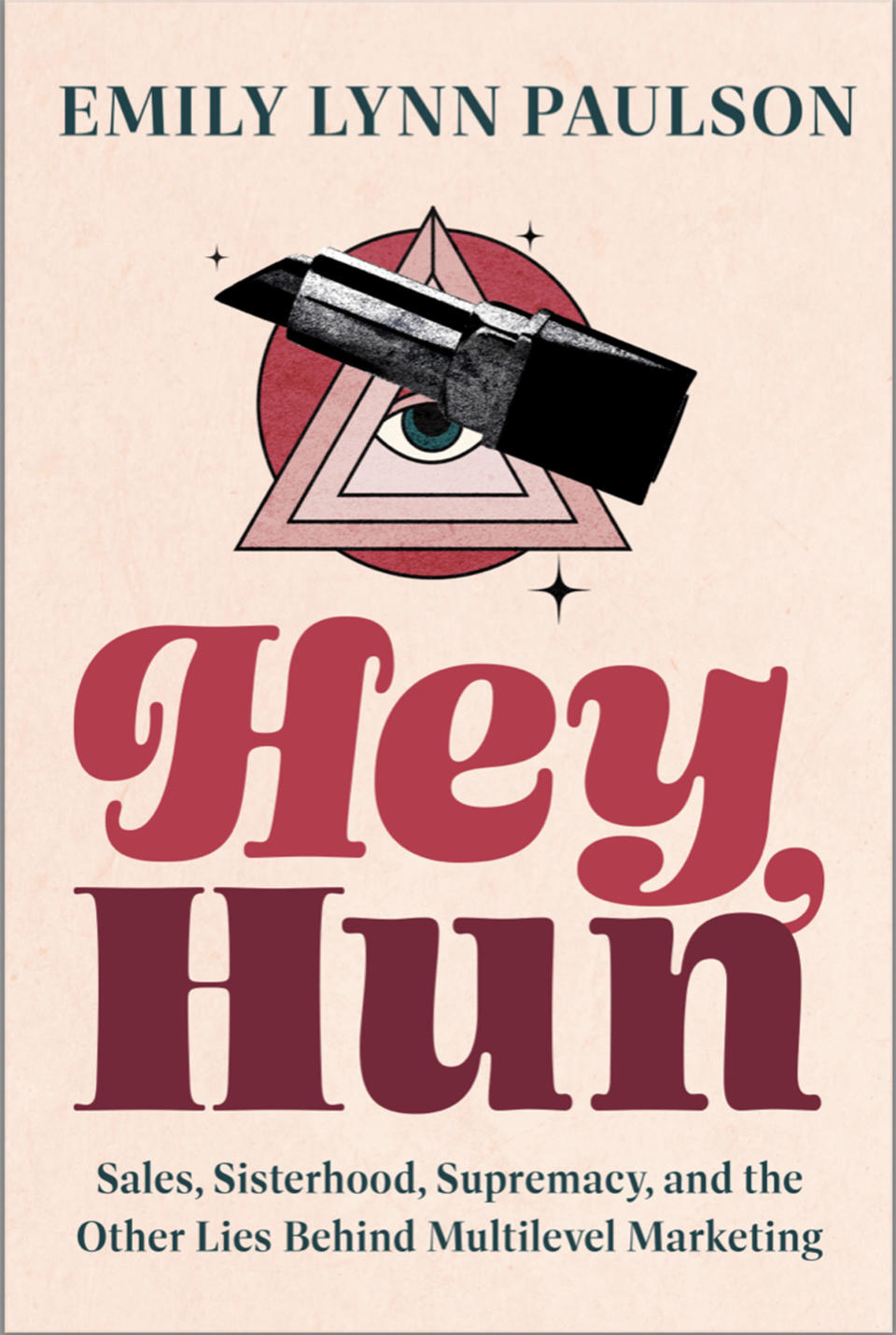I got cancer and used it for pity to grow my MLM business
Emily Lynn Paulson is the author of the upcoming book, “Hey Hun: Sales, Sisterhood, Supremacy and the Other Lies Behind Multilevel Marketing,” a memoir about Paulson’s time selling skin care products for “Rejuvinat” (not the company’s real name). She writes about how she was a top seller who earned over a million dollars along with lavish vacations and a new car — but also ended up with an addiction, ruined friendships and more. This is a personal essay she wrote for TODAY about a moment during that time that she wishes she could take back.
Nearly two years into my “bossbabe” journey, I was on top of the world. I had joined a multilevel marketing company as an escape from the mundane day-to-day as a stay-at-home mom, attracted to the promises of earning a paycheck in my spare time, and dreams of all-expenses-paid trips and gifts. I was selling skin care products from the comforts of my phone.
Unlike most people who join an MLM (research on this varies, but a 2018 AARP survey reports that 74% of people who join MLMs lose money or make no money), the dream was coming true for me! I was posting on social media multiple times a day, selling products and having parties in between playdates and dropping kids off at school, and signing up almost all of my friends (sometimes reluctantly) to my growing team of MLM indoctrinates. I believed I was helping people. Granting them the dream of financial freedom, a purpose beyond the four walls of their house, a possible escape from their 9-5 grind. After all, it was working for me! My paychecks were increasing and I was being shouted out by the company in our team newsletter and on social media, so where was the harm? I wasn’t intentionally being deceptive.
That is, until I was diagnosed with cervical cancer in late 2015.

My MLM team (the women who recruited me plus the women beneath me, whom I recruited) became a second family to me, so of course I shared my sad news with them, which prompted a boatload of empathy and genuine concern, as well as some “advice.” One of my upline business partners (someone upline in the pyramid structure who made money off of my sales, just as I made money off sales by people I brought on) encouraged me to “use this diagnosis to my advantage.” I couldn’t understand how anything about this painful experience could be beneficial. That is, until she reminded me that many women in our MLM had monetized pity for their circumstances — the woman whose husband had passed away; another whose son had a life-threatening illness; another whose house was flattened in a hurricane. I saw firsthand how these women gained sympathy, which inevitably led to sales. My intuition told me that it was less than ethical, but that initial feeling was drowned out by hope — hope that this sh---- situation could lead to something positive.

I encouraged my team to host sales events in the name of cancer research — if they did, I said I would gift them something plus donate a portion of sales to charity. Not only was this flat-out bribery, it was coercive, because I was their upline. I was in a position of power, and they didn’t want to let me down. Plus, how dare they say no to a woman with CANCER who is (seemingly) trying to do a good thing? That pressure extended to customers as well. What kind of person wouldn’t buy a $50 eye cream, knowing that a few dollars of the sale would amplify something good? All the while, it was a duplicitous way for me to increase sales and my customer base.
I got through my surgery and treatment, and the “charitable” events, which did boost my sales and rankings, and raised a few hundred dollars for a local hospital fund. I felt fine about my behavior for a while. However, as time went on, my intuition began to come back online and I felt growing guilt about the tactics being coached and duplicated by me — cold messaging people, bugging people who already said no, inventory loading and other discouraged activities, and yes, exploiting my cancer story.
It took some clarity and distance from my diagnosis to realize that what I had done wasn’t helpful or charitable; it was predatory and vile. I continued deconstructing the way I conducted myself, changing the way I spoke to people, and eventually untethering myself from the MLM altogether, but not before I was diagnosed with cancer for a second time, in late 2017.

This time around, my surgery and treatment were more extensive, but my sales tactics were not. I refused to use my diagnosis as a way to manipulate the people around me. With more clarity, I finally understood what I had done and why it was wrong, all the while continuing to observe similar tactics being employed all around me in the MLM world. I witnessed women on stage at conferences telling their sad stories about how their injury or job loss or family tragedy led to an influx of customers. I became more aware of the success stories that started with a sob story. I realized it was not (entirely) a flaw in me, but a flaw in the system. I see now how mixing sales and charity is no more than a marketing ploy — donating directly to charitable organizations is always the best move. Based on my experiences, I think that many MLMs rely on exploiting vulnerability — this TIME report explains how many MLM companies grew during the COVID-19 pandemic, a time when many people were scared and worried about their future.
Though it took me more time than I’d like, and I stayed much longer than I should, I eventually realized that no amount of money was worth being involved in something that allowed me to act in such a predatory manner. Sending in my termination form was almost as freeing as hearing “cancer-free” at my 5-year checkup this year. Almost.
This article was originally published on TODAY.com

